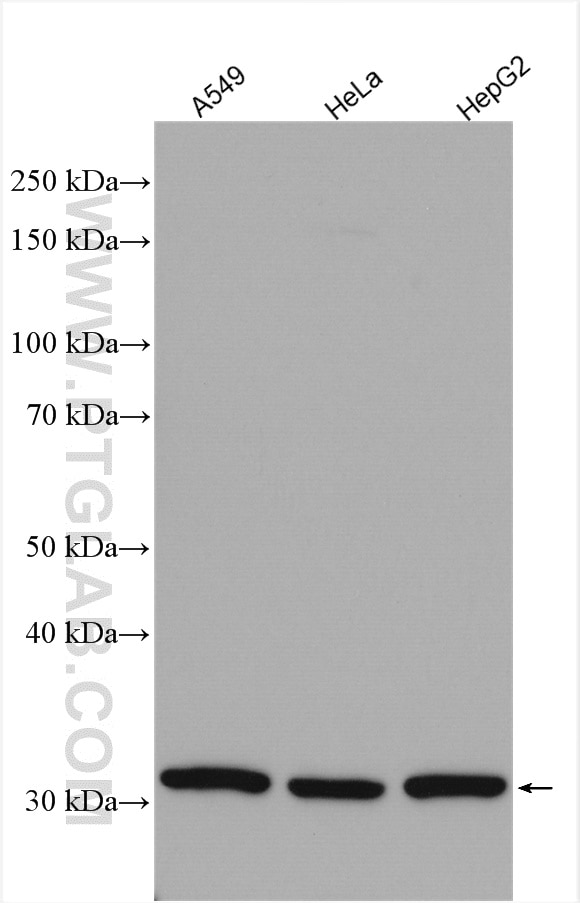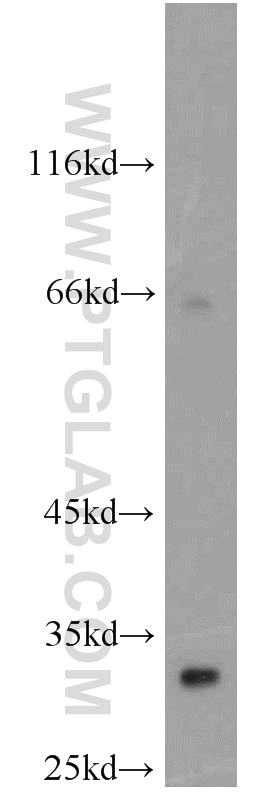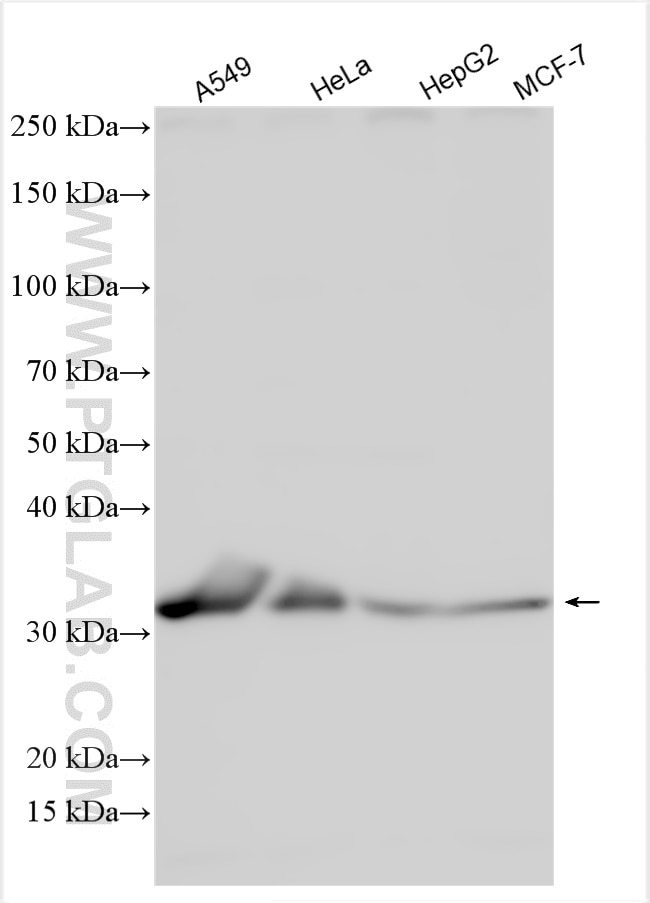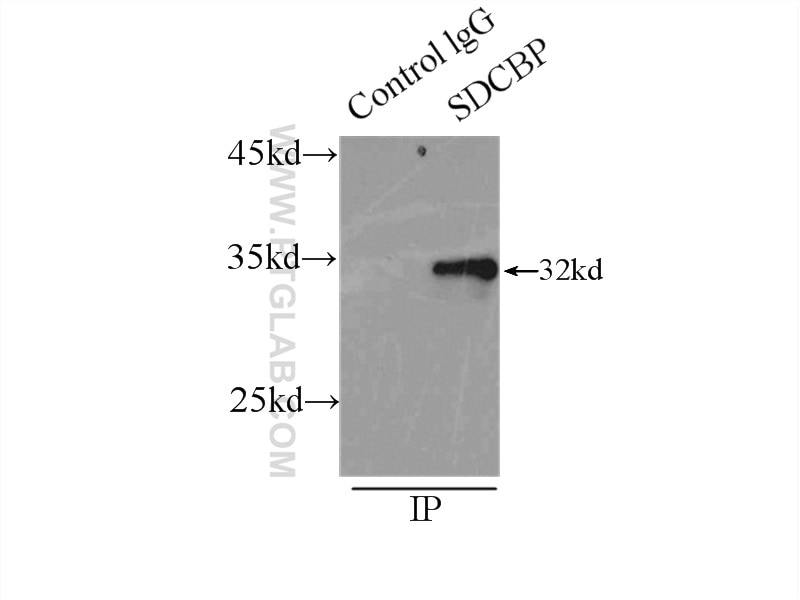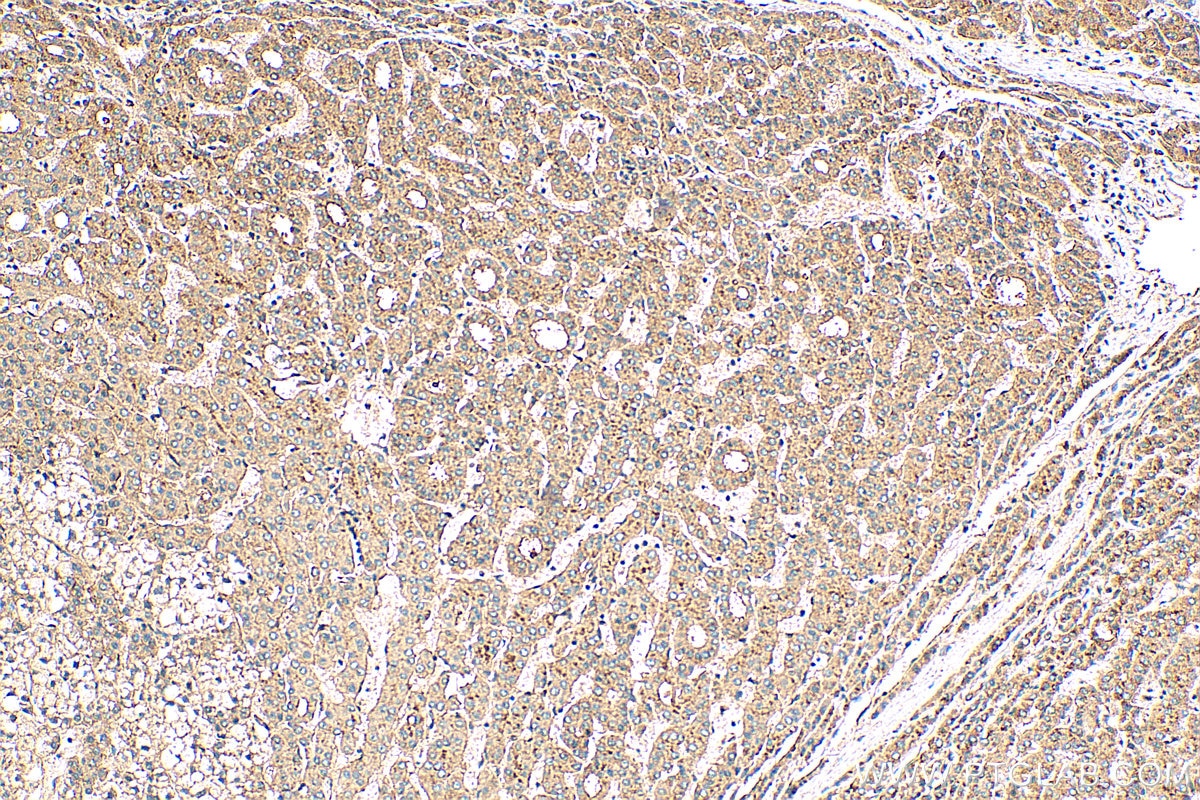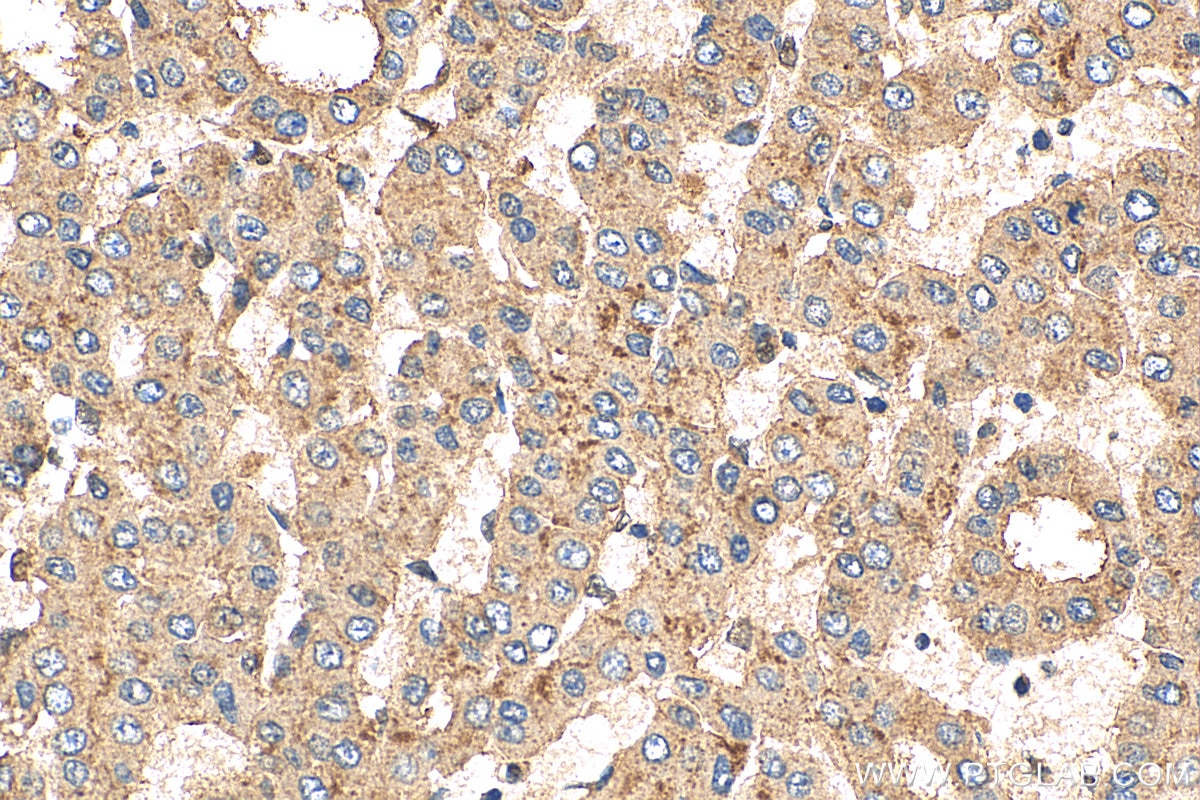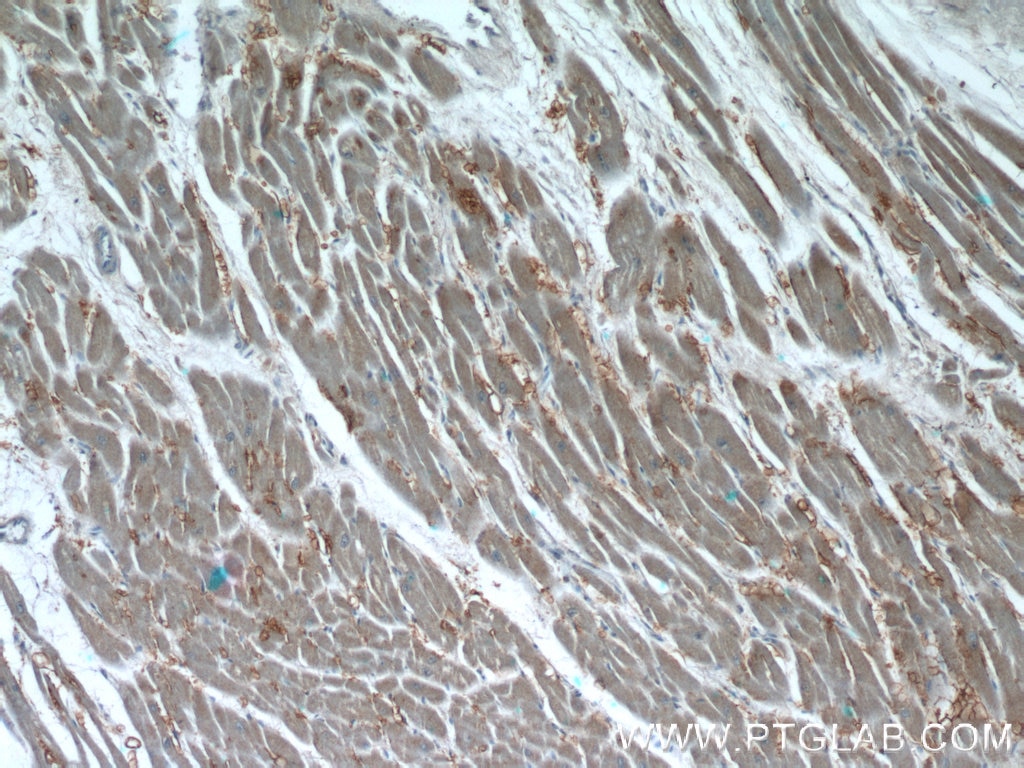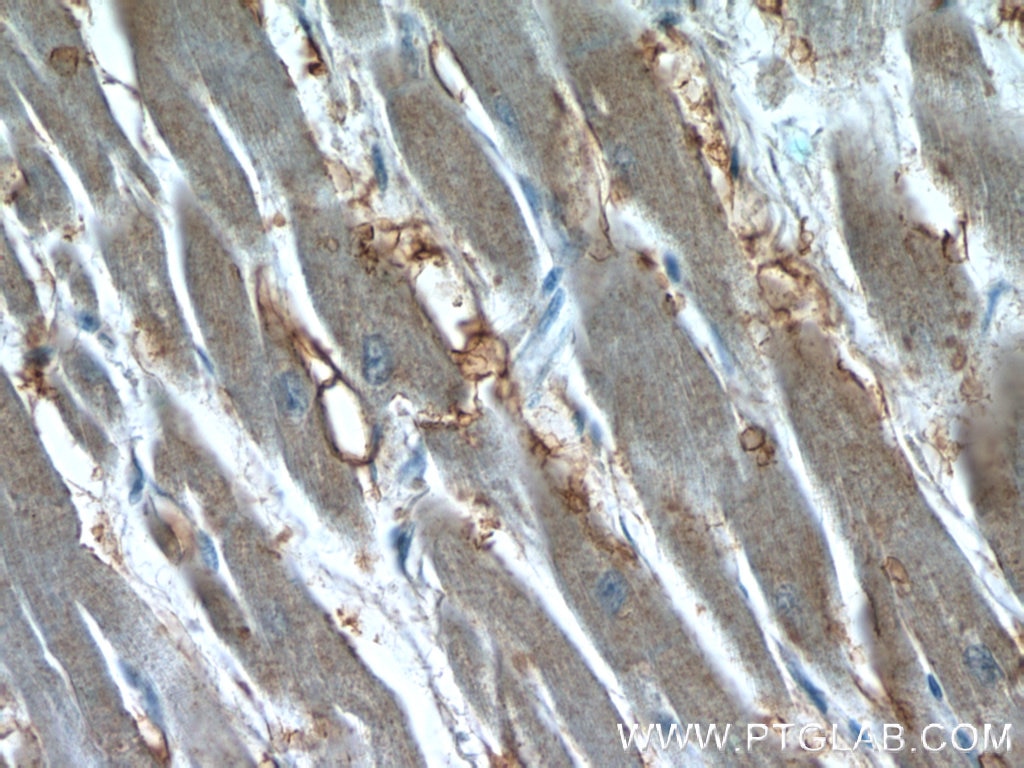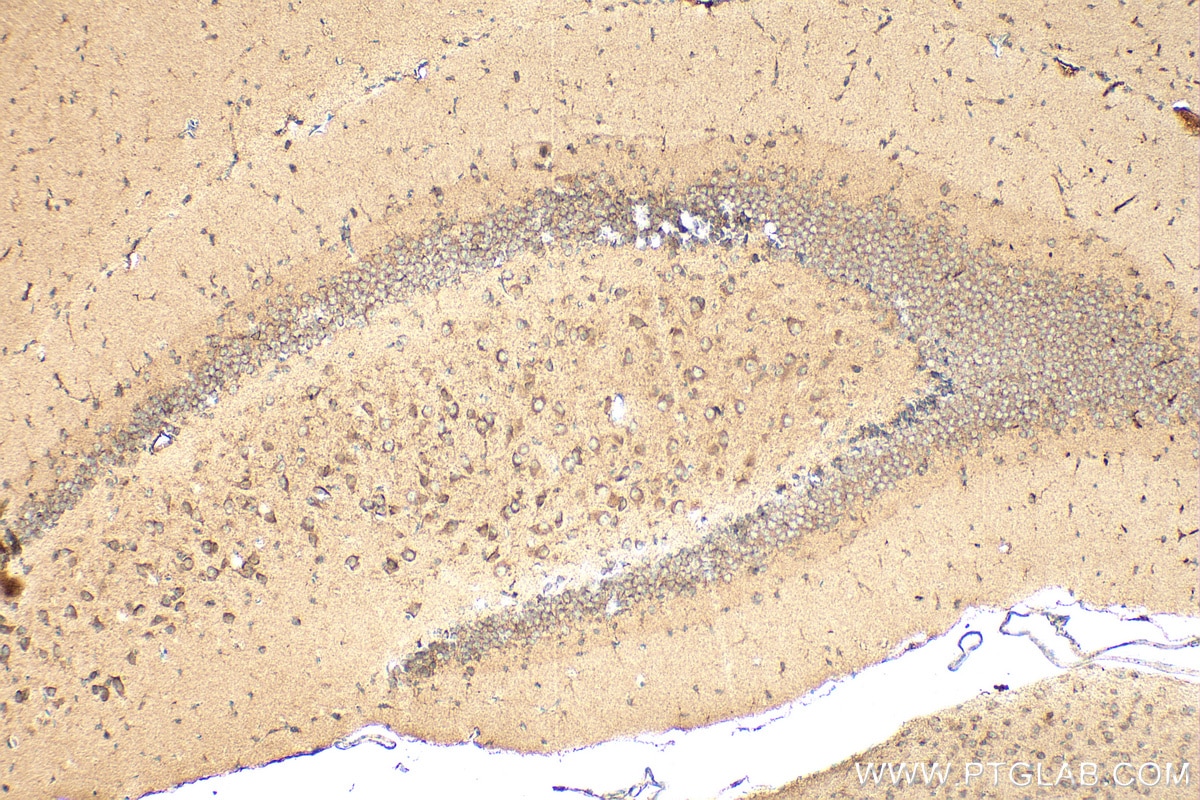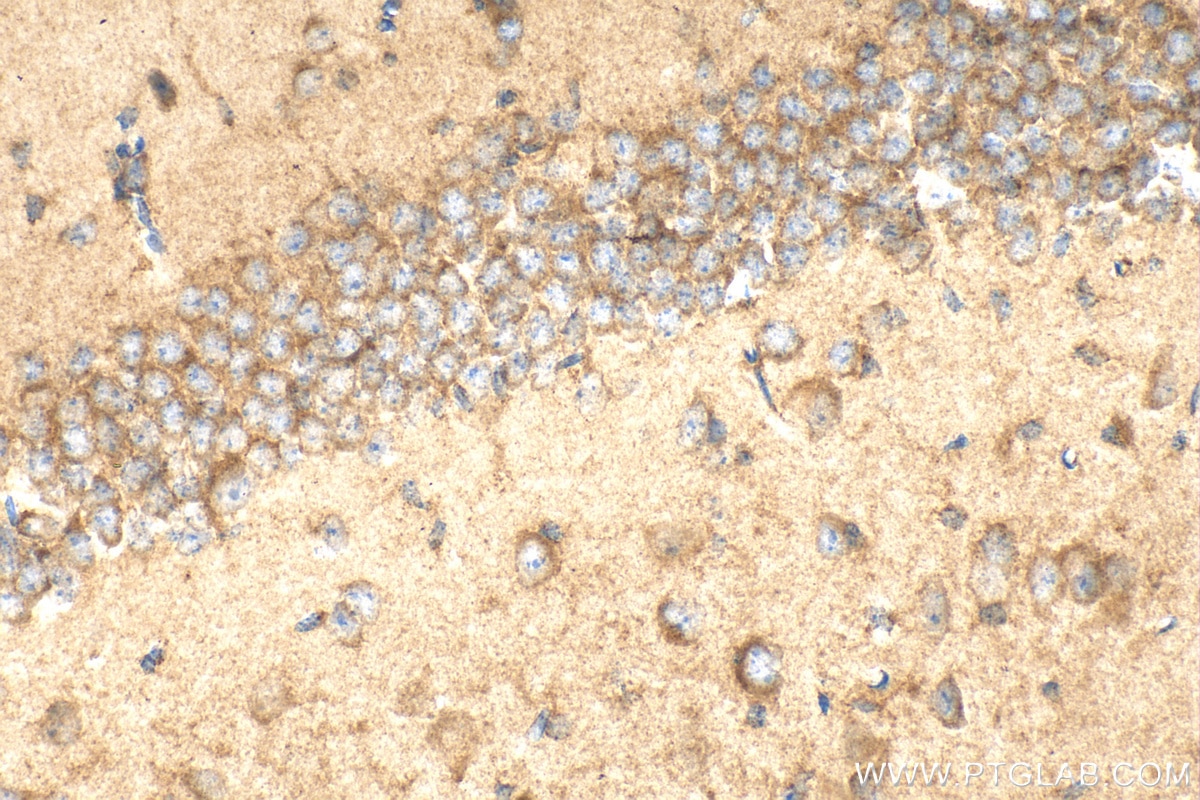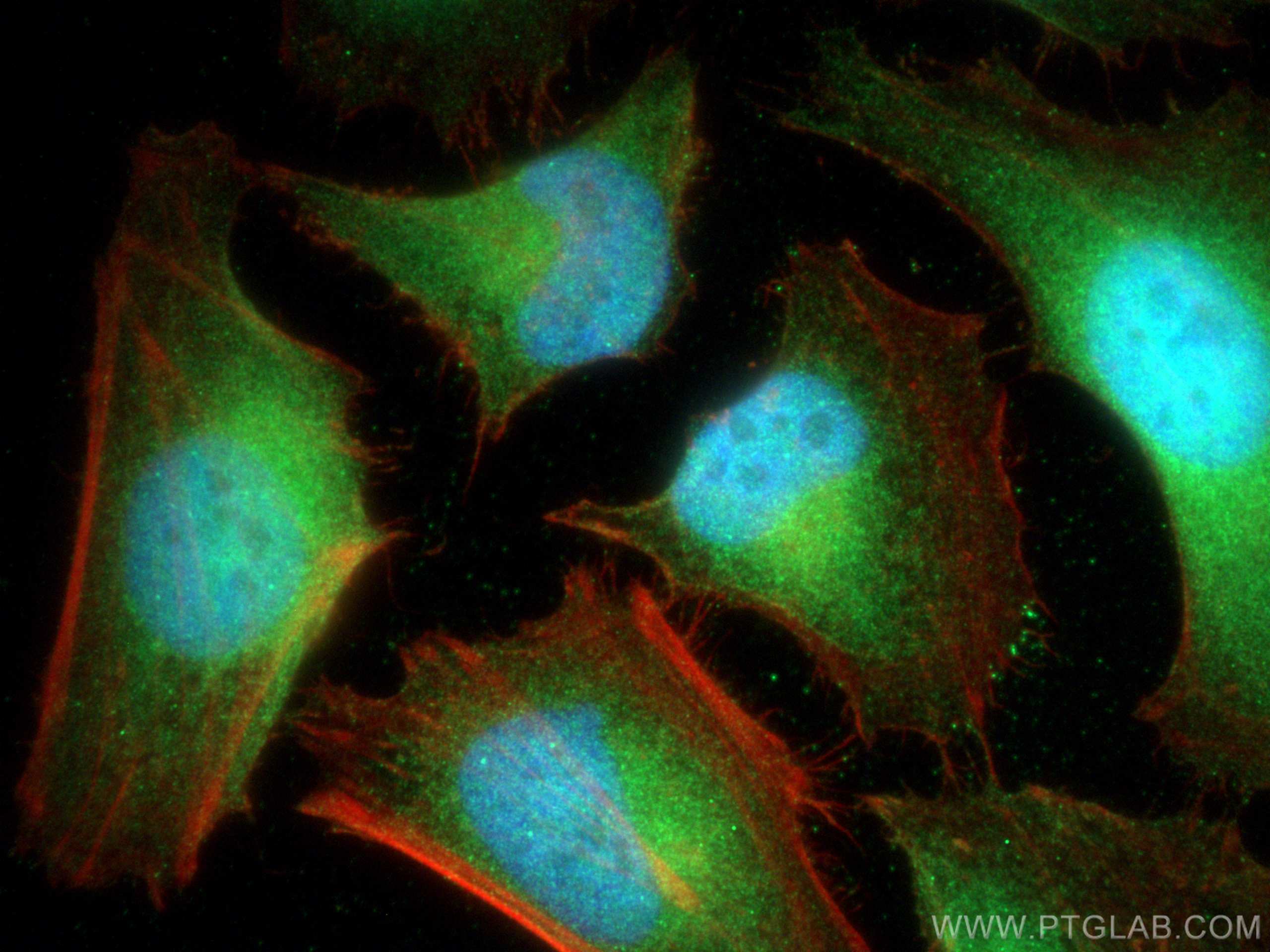Tested Applications
| Positive WB detected in | A549 cells, human placenta tissue, HeLa cells, HepG2 cells, MCF-7 cells |
| Positive IP detected in | HeLa cells |
| Positive IHC detected in | human liver cancer tissue, mouse brain tissue, human heart tissue Note: suggested antigen retrieval with TE buffer pH 9.0; (*) Alternatively, antigen retrieval may be performed with citrate buffer pH 6.0 |
| Positive IF/ICC detected in | HeLa cells |
Recommended dilution
| Application | Dilution |
|---|---|
| Western Blot (WB) | WB : 1:500-1:2000 |
| Immunoprecipitation (IP) | IP : 0.5-4.0 ug for 1.0-3.0 mg of total protein lysate |
| Immunohistochemistry (IHC) | IHC : 1:50-1:500 |
| Immunofluorescence (IF)/ICC | IF/ICC : 1:200-1:800 |
| It is recommended that this reagent should be titrated in each testing system to obtain optimal results. | |
| Sample-dependent, Check data in validation data gallery. | |
Published Applications
| KD/KO | See 6 publications below |
| WB | See 20 publications below |
| IHC | See 2 publications below |
Product Information
22399-1-AP targets Syntenin-1 in WB, IHC, IF/ICC, IP, ELISA applications and shows reactivity with human, mouse samples.
| Tested Reactivity | human, mouse |
| Cited Reactivity | human, mouse, monkey |
| Host / Isotype | Rabbit / IgG |
| Class | Polyclonal |
| Type | Antibody |
| Immunogen | Syntenin-1 fusion protein Ag18078 Predict reactive species |
| Full Name | syndecan binding protein (syntenin) |
| Calculated Molecular Weight | 298 aa, 32 kDa |
| Observed Molecular Weight | 32 kDa |
| GenBank Accession Number | BC113674 |
| Gene Symbol | Syntenin-1 |
| Gene ID (NCBI) | 6386 |
| RRID | AB_2879100 |
| Conjugate | Unconjugated |
| Form | Liquid |
| Purification Method | Antigen affinity purification |
| UNIPROT ID | O00560 |
| Storage Buffer | PBS with 0.02% sodium azide and 50% glycerol, pH 7.3. |
| Storage Conditions | Store at -20°C. Stable for one year after shipment. Aliquoting is unnecessary for -20oC storage. 20ul sizes contain 0.1% BSA. |
Background Information
Syntenin-1, also known as SDCBP (syndecan binding protein) and MDA-9 (melanoma differentiation-associated protein 9), was initially identified as a molecule linking syndecan-mediated signaling to the cytoskeleton. Syntenin-1 is a PDZ-domain-containing molecule that has many interaction partners, and regulates transmembrane-receptor trafficking, cell adhesion, tumor-cell metastasis and neuronal-synapse function. Syntenin-1 is primarily localized to membrane-associated adherens junctions and focal adhesions but is also found at the endoplasmic reticulum and nucleus.
Protocols
| Product Specific Protocols | |
|---|---|
| WB protocol for Syntenin-1 antibody 22399-1-AP | Download protocol |
| IHC protocol for Syntenin-1 antibody 22399-1-AP | Download protocol |
| IF protocol for Syntenin-1 antibody 22399-1-AP | Download protocol |
| IP protocol for Syntenin-1 antibody 22399-1-AP | Download protocol |
| Standard Protocols | |
|---|---|
| Click here to view our Standard Protocols |
Publications
| Species | Application | Title |
|---|---|---|
Cell Res Intercellular transfer of activated STING triggered by RAB22A-mediated non-canonical autophagy promotes antitumor immunity | ||
EMBO J Extracellular vesicles from Zika virus-infected cells display viral E protein that binds ZIKV-neutralizing antibodies to prevent infection enhancement
| ||
Cell Mol Life Sci Exosomes from TNF-α preconditioned human umbilical cord mesenchymal stromal cells inhibit the autophagy of acinar cells of severe acute pancreatitis via shuttling bioactive metabolites | ||
Cell Oncol (Dordr) Circular RNA circNFATC3 acts as a miR-9-5p sponge to promote cervical cancer development by upregulating SDC2. | ||
Cell Oncol (Dordr) EV-miRome-wide profiling uncovers miR-320c for detecting metastatic colorectal cancer and monitoring the therapeutic response. |
